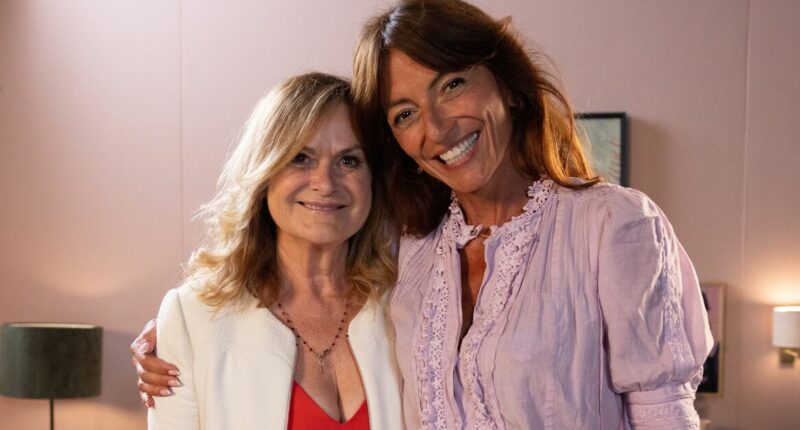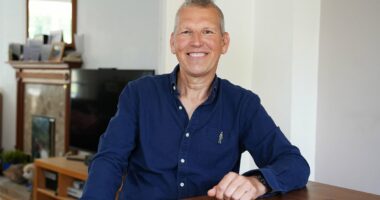Share this @internewscast.com
Close to a million people in the UK are living with dementia, according to NHS figures, and that number is only expected to rise as the population ages. While some celebrities, such as Fiona Phillips, have bravely come forward to speak about the condition, the various forms of dementia are still not fully understood by most of us.
Even among healthcare professionals, the underlying causes of Alzheimer’s disease – the most common cause of dementia – remain unclear.
Former Big Brother presenter Davina McCall has had her own experience of severe memory loss after undergoing surgery to remove a cyst on her brain: “I’ve basically had Alzheimer’s,” she said. “I was like a very advanced Alzheimer’s patient who could feel herself getting better every day.”
Speaking on Davina’s Begin Again podcast, Irish neuroscientist Dr. Sabina Brennan has outlined three simple lifestyle changes that can delay, or even prevent the onset of this terrifying condition.
Exercise
Dr. Brennan describes a protein called brain-derived neurotrophic factor (BDNF) as “Miracle-Gro for the brain,” and explains that it can be boosted very easily: “Physical exercise is one of the best things you can do for your brain health,” she told Davina.
“People are often surprised at that, but a healthy cardiovascular leads to a healthy brain. When you exercise, there is a chemical called brain-derived neurotrophic factor which is released.
“I call it ‘Miracle-Gro for the brain.’ It makes it easier for you to grow new brain cells and new connections between them. And that’s what you want in a healthy brain. Lots of brain cells and connections.”
She explains that, at least in the early stages of dementia, the healthier your brain is, the longer it will be able to resist decline: “if you get Alzheimer’s disease pathology in your brain in the early stages, it is not about how much pathology, how much disease you have in your brain.
“It’s about how much healthy brain you have to cope with that disease that will allow you to continue functioning for as long as possible.”
Socialising
Simply talking to people is another effective defence against dementia, Dr. Brennan says. Simply having a chat is “a challenging activity for your brain,” she explains.
“Your brain has to work hard. And that’s really, really good.” She adds that forming social networks with people of different age groups is essential to prevent isolation in later life.
“We tend to hang out with people of the same age as us,” Dr. Brennan explains. “But there’s no nice way to say it. As you get older, your age cohort will die off. And so people end up socially isolated through no fault of their own.
“We have to have more intergenerational friendships. And the research shows that everybody benefits in that case. And the research shows that everybody benefits in that case; younger people interacting with older people have to do something about that. If you know anybody who’s socially isolated, it can be hard to draw them back in again, but really please do go and encourage them because not being socially active can really accelerate decline.”
She says that intergenerational friendships can be a two-way street, and younger people shouldn’t see visiting their elderly relatives as an act of charity: “Visit them as an equal. Do not visit them as someone who’s doing a good deed. Talk to them as an intelligent individual.”
Do something new
Or, as Dr. Brennan puts it, “go mental.” She says that challenging yourself by learning a new skill or language can encourage the development of this vital connections that will help your brain resist advancing dementia.
“Learn something new because that’s when you harness neuroplasticity. I just wish there was another word for learning because it’s got such connotations about education and school and for a lot of people a lot of negative [connotations].”
She says cultivating any skill can trigger new brain connections: “When you open a door for the first time, you’re learning how to open that door. Your brain is learning how much pressure to put on that door, how much force you have to push it.”
A lot of people, as they get older and start to worry about declining mental sharpness, and take up hobbies such as Sudoku or crosswords that are known to help build mental sharpness. But, Dr. Brennan says, you shouldn’t stop there.
“Once you’re good at it, you’re comfortable, you got to push yourself to the next level.
“Go from simple crossword to complex crossword. Put a timer on so you do it more quickly. You know, you just got to keep challenging yourself. But it can be anything. If you play a musical instrument, learn another technique.”
She concludes that while learning is important, getting enough sleep so your brain can effectively process and categorise all those new skills is crucial.

















